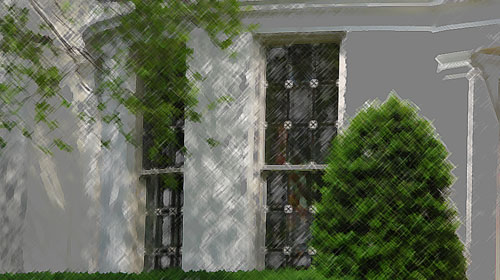
I’d like to make one major point about the NSA surveillance scandal that many people have made indirectly, or implicitly, or seem to have assumed, but have not stated baldly and explicitly. That point is how this incident has laid bare the arrogance of our national security officials.
Because there are really two separate issues behind last week’s revelations. The first is, how much surveillance of the American people should the government conduct? The second is, who should decide how much surveillance of the American people the government should conduct?
And on that second question, the government has arrogated to itself the power to make that decision, unilaterally, in secret, on behalf of the American people.
In his only comments on this scandal, President Obama said,
I think it's important for everybody to understand—and I think the American people understand—that there are some tradeoffs involved. … But I think it's important to recognize that you can't have 100 percent security and also then have 100 percent privacy and zero inconvenience. We're going to have to make some choices as a society.
Apparently by “we” in that last sentence, the president meant “my national security team,” not “we the American people.” Because they had already made those choices when we found out about all this.
Director of National Intelligence James Clapper insists that “discussing programs like this publicly will have an impact on the behavior of our adversaries.” But public discussion of this kind of program is what it means to live in an open democratic society. So national security officials have decided that the increased threat of terrorism that would come from upholding the democratic process is so great that it is worth sacrificing that democratic process? First of all, count me skeptical. Second, after all this country has sacrificed in its history to defend democracy, who are these officials to make the judgment that we ought to sacrifice some of that democracy?
There was certainly no broad awareness that the NSA was engaged in dragnet surveillance of Americans’ communications, either outside of Congress or within it. Indeed, the activities went far beyond what most people understood the Patriot Act to authorize. As my colleague Patrick Toomey pointed out Monday, the government won’t even be transparent about how it is interpreting the authorities Congress supposedly gave it. For example, Section 215 of the Patriot Act allows the government to compel production of records relevant to foreign intelligence or terrorism investigations. But how could all phone records possibly be relevant to such investigations? Far from deferring to democratic discussion about the Patriot Act’s powers, the government has aggressively pushed those powers to their limits and beyond, and refused to share its deliberations or interpretations with the public.
At the ACLU we feel strongly that mass surveillance is not worth the trade-offs involved, being of questionable effectiveness while violating our core privacy traditions. But even someone who disagreed with us on that matter should agree that whether or not to permit this kind of mass surveillance is a core values judgment of our civilization—a decision that goes directly to the heart of what kind of country we want to live in. That is a decision that should be made by all of us democratically after full and open debate, and is not one that executive branch officials have any business deciding on their own in secret. Yet these officials decided to substitute their own judgment for the judgment of the American people. And it’s not as if they are neutral parties in the decisions they made, which just happen to give them more power.

